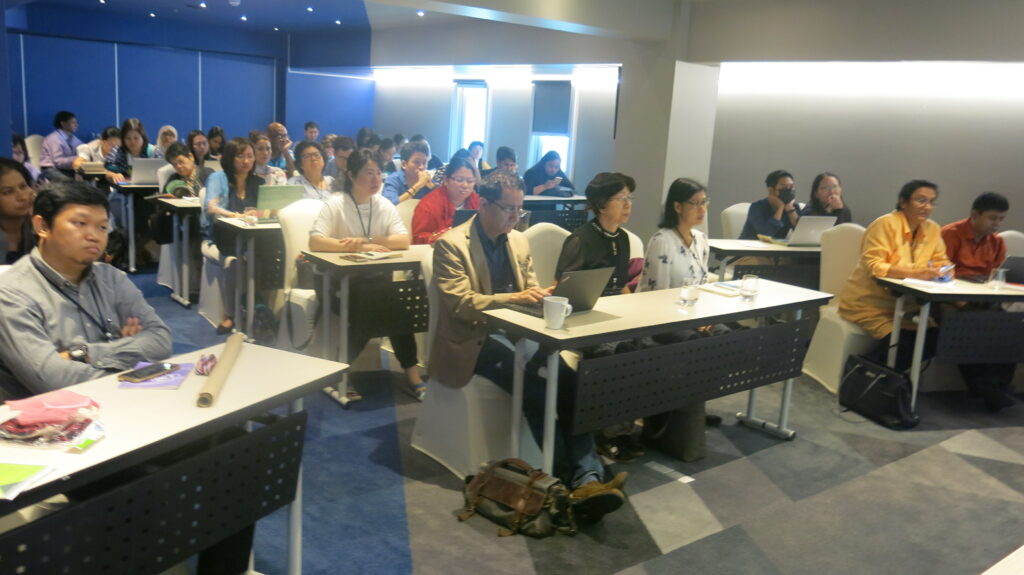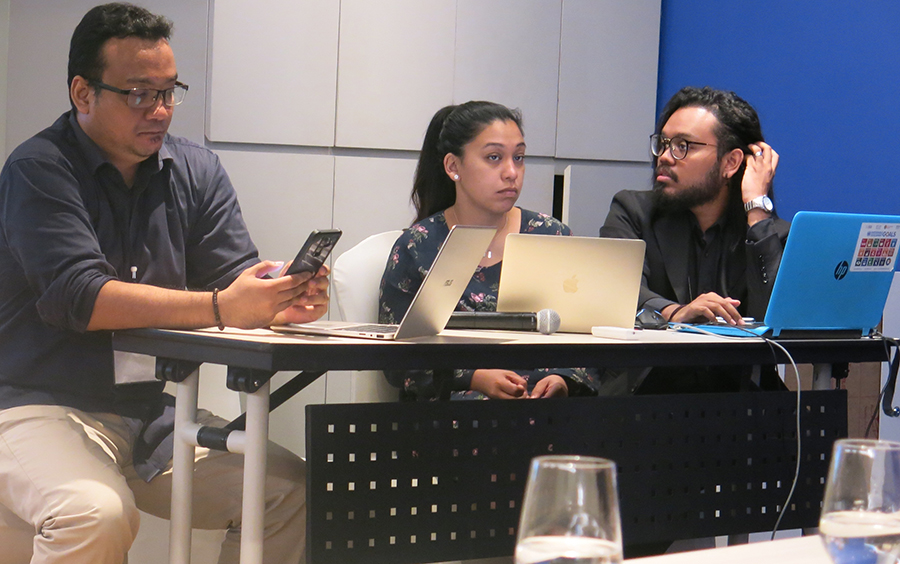The Asian Solidarity Economy Council (ASEC) hosted a workshop at the Asia Pacific People Forum for Sustainable Development on March 26, 2019 at Bangkok. About 40 CSO leaders from various parts of Asia participated in this two hour discussions.
Written by Prof. Denison Jayasooria, Chair of ASEC and Principal Research fellow at the Institute of Ethnic Studies, National University of Malaysia (UKM).
Seven case studies from six countries were presented. (Thailand, Malaysia, Indonesia, India, Bangladesh, Sri Lanka. We recognise that local communities have the potential for self-organising and self-empowering.
Social solidarity economy namely community based enterprises have a potential for effective implementation of SDGs at the grassroots level where people, profits, planet can become a key agenda with good governance (collective decision making) and effective values.
We discussed issues pertaining to discrimination and inequality faced by the urban poor & informal sector including street vendors, rural poor indigenous & tribal people including forest based communities, ethnic minorities disadvantaged by the caste system (Dalit) and women.

Presentations
Ms Poonsap Tulaphan of HomeNet, Bangkok Thailand highlighted the challenges faced by urban informal sector mainly women street vendors who are often harassed by enforcement officials. The informal sector mobilised street protest to exert their rights and entered dialogue with city officials to provide the space for their micro business enterprises. Over 10,000 people are part of this network ensuring they exercise their citizens’ rights in the city.
Ms Jocelyn Jayasooria a post graduate student highlighted the plight of Tamil Youths in the Northern district of Jaffna in Sri Lanka in a post conflict situation who are facing high levels of unemployment and early drop out of schools. Youths are organising themselves as social clubs to address social ills and the early stages of crime & gangs, drugs & alcohol abuse. Participation in skills training and micro businesses are a probable solution in a context where there is very little investments.
Mr Josiah @ Along Gera, from the Foundation for Community Studies & development (YKPM) from Malaysia highlighted an innovative initiative of hunters-gatherers who now have become organic farmers. They are the Orang Asli (original people) who are among the forest based communities in Malaysia. While the community based economic project provides income they continue to face challenges pertaining to land ownership and infringements. They are also involved in land rights struggles.
Mr Wong Kian Leong of Living Water Foundation, Chengmai, Thailand provides rural patients & families a place to stay while they undergo medical treatment. While this is a compassionate service in a home with only 19 beds, they have serviced over 600 people in the year. They are now expanding their facilities to over 100 beds with facilities being provided by the local hospital. They undertake handicraft making by staff, patients and volunteers which contributes about 25% of their operating cost.
Mr Arif R Haryono of Dompet Dhuafa, Jakarta, Indonesia Rural farmers & Islamic finance is operated with funds from Islamic contributions of Zakat. They provide financial assistance (micro credit) to over 30,000 farmers who are organised at the grassroots.
Mr Zakir Hossain of Bangladesh spoke of the discrimination and exclusion faced by Dalit & other excluded due to caste and socio economic divide. Citizens’ rights education and collective mobilisation are the ways these communities are addressing their disadvantage.
Mr Darpan Chhabra, Prayatna Samiti, Rajasthan, India highlighted the issues being faced by backward tribal communities in Rajasthan. He highlighted the food security, community assisted agriculture and the organic farms of this community through self help approaches.
Some lessons

Social solidarity economy or community based enterprises has a good potential to be recognised as an effective implementation tool of SDGs at the grassroots level. Social solidarity economy namely community based enterprises have a potential for effective implementation of SDGs at the grassroots level where people, profits, planet can become a key agenda with good governance and effective values. Grassroots communities are truly transformative economies on the ground creating local wealth and confronting injustices through people empowerment.
Disaggregated data collection through micro studies can complement macro data. The micro studies provide a face to the people and illustrates the interconnected nature of SDGs as they impact a particular group. For example the organic farms of the indigenous people address issues pertaining to poverty and hunger SDG 1 & 2 but at the same time it addresses concerns of SDG 8 pertaining to decent work and wages. At the same time it addresses SDG 12 on responsible production and consumption and issues pertaining to land and forest use impacting SDG 13 and 15. SDG 16 access to justice due to legal action on their lands as well as SDG 17 on multi stakeholder is also relevant.
We noted that grassroots communities must empower themselves as the powerful in any society including the elites will not want a dynamic grassroots movements. Therefore there is a need for self-organising and empowerment of grassroots organisations.



Leave A Comment